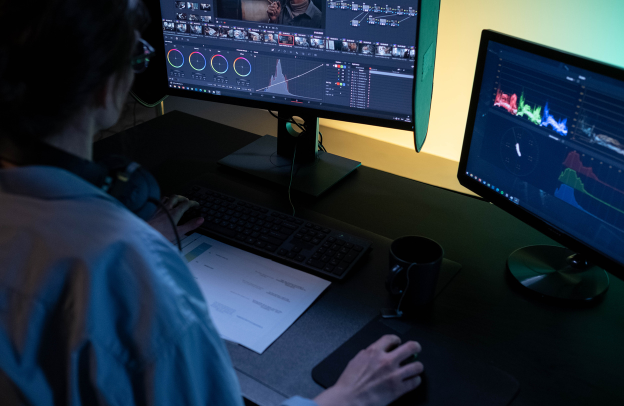What Is The Creative Economy – Transforming Your Passion Into Business

Welcome to a follow-up article from a series we have created from our previous webinar: “Passion To Business – How to Start A Business Based On What You Already Know”. This article in the series will be talking about “What is The Creative Economy”.
To learn more about the topics of Passion To Business, you can check out our previous article on the argument: How To Transform Your Passion Into Business.
What is The Creative Economy
In the previous article in the series, we identified the economic challenges faced by young Africans and individuals in the African diaspora. Now, is the time to explore the exciting and transformative concept of the creative economy. This is where your passions, skills, and knowledge can become powerful assets for your financial independence.
If you are hearing the term for the first time, a creative economy essentially means the type of economy that is based on people’s use of their creative imagination to increase value and earn income.
I want to repeat that in case you didn’t hear me well the first time: the only reason you are in the marketplace, as a business owner, is to add value, the money will come after that. That is so crucial in the entire process.
In case you are wondering, let’s quickly consider some of the characteristics of The Creative Economy: The Creative Economy is characterized by several key features that distinguish it from traditional economies. Here are three important characteristics:
- Intangible Assets: Unlike traditional economies that often rely on tangible goods and physical assets, the Creative Economy places a significant emphasis on intangible assets. These include intellectual property, creativity, knowledge, and innovation. The value in this economy is often derived from ideas, design, branding, and other non-physical elements.
- Creative Industries: The Creative Economy is comprised of various creative industries, such as media, advertising, design, arts, software development, and entertainment. These industries are driven by human creativity and skills, and they contribute significantly to economic growth and job creation. The focus is on generating value through original ideas and unique expressions rather than the mass production of standardized goods.
- Collaboration and Connectivity: The Creative Economy thrives on collaboration and connectivity. It is often characterized by networks of individuals, organizations, and institutions working together to foster innovation and creativity. This collaborative nature is facilitated by advancements in technology, communication, and globalization, allowing creative professionals to connect, share ideas, and collaborate across geographic boundaries.
These characteristics highlight the shift towards an economy where value is increasingly derived from creativity, innovation, and the ability to leverage intangible assets. The Creative Economy is dynamic, and adaptive, and relies on the talents and skills of individuals to drive economic growth and development.
But really is the relevance of the Relevance of the Creative Economy today? Well, let’s quickly see to that.
Relevance of the creative economy
The creative economy is a dynamic and growing sector that is fast reshaping the way we think about work and income generation. It’s all about harnessing your creativity, skills, and unique talents to create value in the digital landscape.
In a nutshell, the creative economy encompasses a wide range of fields, from art and design to digital content creation, cultural industries, and innovative services. It’s about turning your imagination into tangible products or services that people are willing to pay for.
This economy is incredibly relevant to our target audience. Why? Because the creative economy thrives on diversity and individuality. It doesn’t matter where you come from or what your background is – it’s all about what you bring to the table.
The digital age has expanded the horizons of the creative economy. With a smartphone and internet access, you have the tools to access a global audience and participate in this economic revolution.
Exploring the potential for earning through creativity
The potential for earning through creativity is vast and multifaceted, encompassing various fields such as art, design, writing, music, and innovation. Creative individuals can monetize their unique skills and ideas through avenues like freelance work, selling original creations, licensing intellectual property, and participating in collaborative projects.
The advent of digital platforms has expanded these possibilities, enabling creators to reach global audiences and explore diverse revenue streams, including online content creation, e-commerce, and crowdfunding. Additionally, creative endeavors often lead to the development of valuable brands and businesses, further enhancing the potential for sustainable and fulfilling financial success.
Ultimately, the capacity to generate income through creativity is limited only by the imagination and entrepreneurial spirit of the individual. Now, let’s dive deeper into the potential that creativity holds for earning income:
- The avenues are limitless. You can create and sell digital art, craft educational courses, offer consulting services, develop software applications, write books, compose music, design fashion, or provide a wide range of other innovative products and services.
- The beauty of the creative economy is that it allows you to turn your passions into a profitable endeavor. When you love what you do, your work becomes more than just a job – it’s a source of personal fulfillment.
- With the ability to reach a global audience online, your creativity knows no geographical boundaries. You can connect with people from around the world who share your interests and are willing to pay for your expertise.
My advice to you is to seek more information about what the creative economy is, how it has transformed the lives of others, and how you can tap into this powerful force to start your own journey toward financial independence.
The key is to embrace your unique skills and talents and channel them into something you’re passionate about, and we’re here to guide you on that path.
Identifying Your Passion and Expertise
Before you can embark on the path to starting your online business based on what you already know, it’s crucial to identify your passion and expertise. This foundational step will serve as the cornerstone of your journey toward financial independence.
Encouraging Self-Reflection to Discover Personal Interests
The journey to success often begins with introspection. We encourage you to take a moment to reflect on your personal interests, hobbies, and what truly excites you. Your passions can be a valuable resource for building a fulfilling online business.
Consider what activities or subjects you could immerse yourself in for hours without feeling like it’s work. These are clues to discovering your true interests.
Think about your values and what you want to contribute to the world. Identifying your core values can help guide your business choices.
How to Identify Marketable Skills
Passion is an excellent starting point, but it’s also essential to identify your marketable skills. These are skills that not only interest you but also have a potential market demand. Before, when talking about the creative economy, I mentioned adding value and that is where we are again.
The marketability of your skills is determined by how much value you add to the marketplaces. Sometimes, it doesn’t matter how much value you place on your skillset, instead, what is important is what the people you are serving say and how much are they willing to pay for your service.
Analyze your strengths and weaknesses. What skills do you possess that could be of value to others? They could be technical skills, soft skills, or a combination of both.
Research the market to understand which skills are currently in demand. This step is crucial to ensure that your skills align with market needs.
Conclusion on What is The Creative Economy
The Creative Economy remains a dynamic and transformative force, weaving innovation, imagination, and entrepreneurship into the very fabric of our global landscape. As we navigate the digital age and witness the convergence of technology, art, and commerce, it becomes increasingly evident that creativity is not merely a luxury but a strategic necessity for sustainable economic growth.
The Creative Economy transcends traditional boundaries, unlocking new pathways for cultural expression, economic diversification, and social progress. It is a catalyst for job creation, fostering a workforce that thrives on adaptability and ingenuity. Moreover, it has the power to bridge gaps, fostering cross-cultural understanding and collaboration on a scale never imagined.
Ultimately, the Creative Economy is not just about the arts and culture; it is a mindset, a driver of prosperity that extends far beyond the canvas or the screen. It challenges us to rethink the way we approach problem-solving, encouraging a synthesis of diverse ideas and perspectives.
As we embark on this exciting journey into a future shaped by creativity, we must recognize and celebrate the immense potential it holds for fostering innovation, driving economic development, and enriching the human experience. The Creative Economy is not just a sector; it is a transformative force that has the power to redefine the way we live, work, and imagine our shared future.





